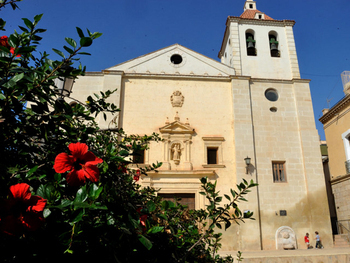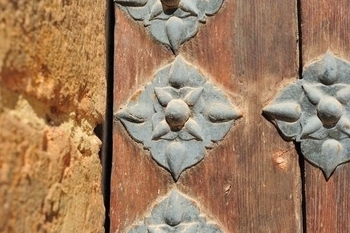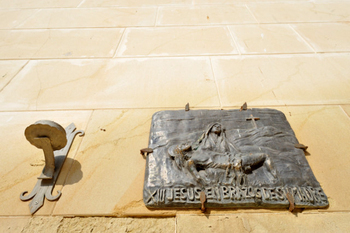- Region
- Águilas
- Alhama de Murcia
- Jumilla
- Lorca
- Los Alcázares
- Mazarrón
- San Javier
-
ALL AREAS & TOWNS
- AREAS
- SOUTH WEST
- MAR MENOR
- MURCIA CITY & CENTRAL
- NORTH & NORTH WEST
- TOWNS
- Abanilla
- Abarán
- Aguilas
- Alamillo
- Alcantarilla
- Aledo
- Alhama de Murcia
- Archena
- Balsicas
- Blanca
- Bolnuevo
- Bullas
- Cañadas del Romero
- Cabo de Palos
- Calasparra
- Camping Bolnuevo
- Campo De Ricote
- Camposol
- Canada De La Lena
- Caravaca de la Cruz
- Cartagena
- Cehegin
- Ceuti
- Cieza
- Condado de Alhama
- Corvera
- Costa Cálida
- Cuevas De Almanzora
- Cuevas de Reyllo
- El Carmoli
- El Mojon
- El Molino (Puerto Lumbreras)
- El Pareton / Cantareros
- El Raso
- El Valle Golf Resort
- Fortuna
- Fuente Alamo
- Hacienda del Alamo Golf Resort
- Hacienda Riquelme Golf Resort
- Isla Plana
- Islas Menores & Mar de Cristal
- Jumilla
- La Azohia
- La Charca
- La Manga Club
- La Manga del Mar Menor
- La Pinilla
- La Puebla
- La Torre
- La Torre Golf Resort
- La Unión
- Las Palas
- Las Ramblas
- Las Ramblas Golf
- Las Torres de Cotillas
- Leiva
- Librilla
- Lo Pagan
- Lo Santiago
- Lorca
- Lorquí
- Los Alcázares
- Los Balcones
- Los Belones
- Los Canovas
- Los Nietos
- Los Perez (Tallante)
- Los Urrutias
- Los Ventorrillos
- Mar De Cristal
- Mar Menor
- Mar Menor Golf Resort
- Mazarrón
- Mazarrón Country Club
- Molina de Segura
- Moratalla
- Mula
- Murcia City
- Murcia Property
- Pareton
- Peraleja Golf Resort
- Perin
- Pilar de la Horadada
- Pinar de Campoverde
- Pinoso
- Playa Honda
- Playa Honda / Playa Paraíso
- Pliego
- Portmán
- Pozo Estrecho
- Puerto de Mazarrón
- Puerto Lumbreras
- Puntas De Calnegre
- Region of Murcia
- Ricote
- Roda Golf Resort
- Roldan
- Roldan and Lo Ferro
- San Javier
- San Pedro del Pinatar
- Santiago de la Ribera
- Sierra Espuña
- Sucina
- Tallante
- Terrazas de la Torre Golf Resort
- Torre Pacheco
- Totana
- What's On Weekly Bulletin
- Yecla


- EDITIONS:
 Spanish News Today
Spanish News Today
 Alicante Today
Alicante Today
 Andalucia Today
Andalucia Today
Iglesia de San Antón Mazarrón
The 16th and 17th century church of San Antonio de Padua in Mazarrón

Mazarrón is unusual in that it has two parish churches, a situation which arose due to the concessions granted to two powerful families, the Fajardos (Marqueses de los Vélez) and the Pachecos (Marqueses de Villafranca) each of whom built their own church (click for a brief history of Mazarrón).
The Church of San Antonio de Padua is situated next to the modern Town Hall, at the foot of the hill on which the castle of Los Vélez stands, surrounded by buildings dating from a later period of construction.
 The church was built on the orders of the Marqués de los Vélez, and was finished in 1581. It had its own chaplain, who was in charge of all the religious services required by those working in the town, and whose existence also ensured that it was exempt from the payment of taxes to the Church of Cartagena.
The church was built on the orders of the Marqués de los Vélez, and was finished in 1581. It had its own chaplain, who was in charge of all the religious services required by those working in the town, and whose existence also ensured that it was exempt from the payment of taxes to the Church of Cartagena.
The simple basic structure has undergone frequent reforms and variations, especially in the last 200 years, including the addition of the sacristy, the creation of a bell-tower, repairs in the dome on the transept and the unfortunate loss of altarpieces and images during the Spanish Civil War (1936-39).
 The altarpieces lost during the Civil War have been replaced with new ones, which closely follow the style of their predecessors. The font remains from the old church.
The altarpieces lost during the Civil War have been replaced with new ones, which closely follow the style of their predecessors. The font remains from the old church.
On the façade the figure of San Antonio de Padua stands in a niche, just below the coat of arms of the Vélez family.
The church is currently closed for renovation works and is not in use as a place of worship.
Mass is held in the Churches of La Purísima and San Andrés.





